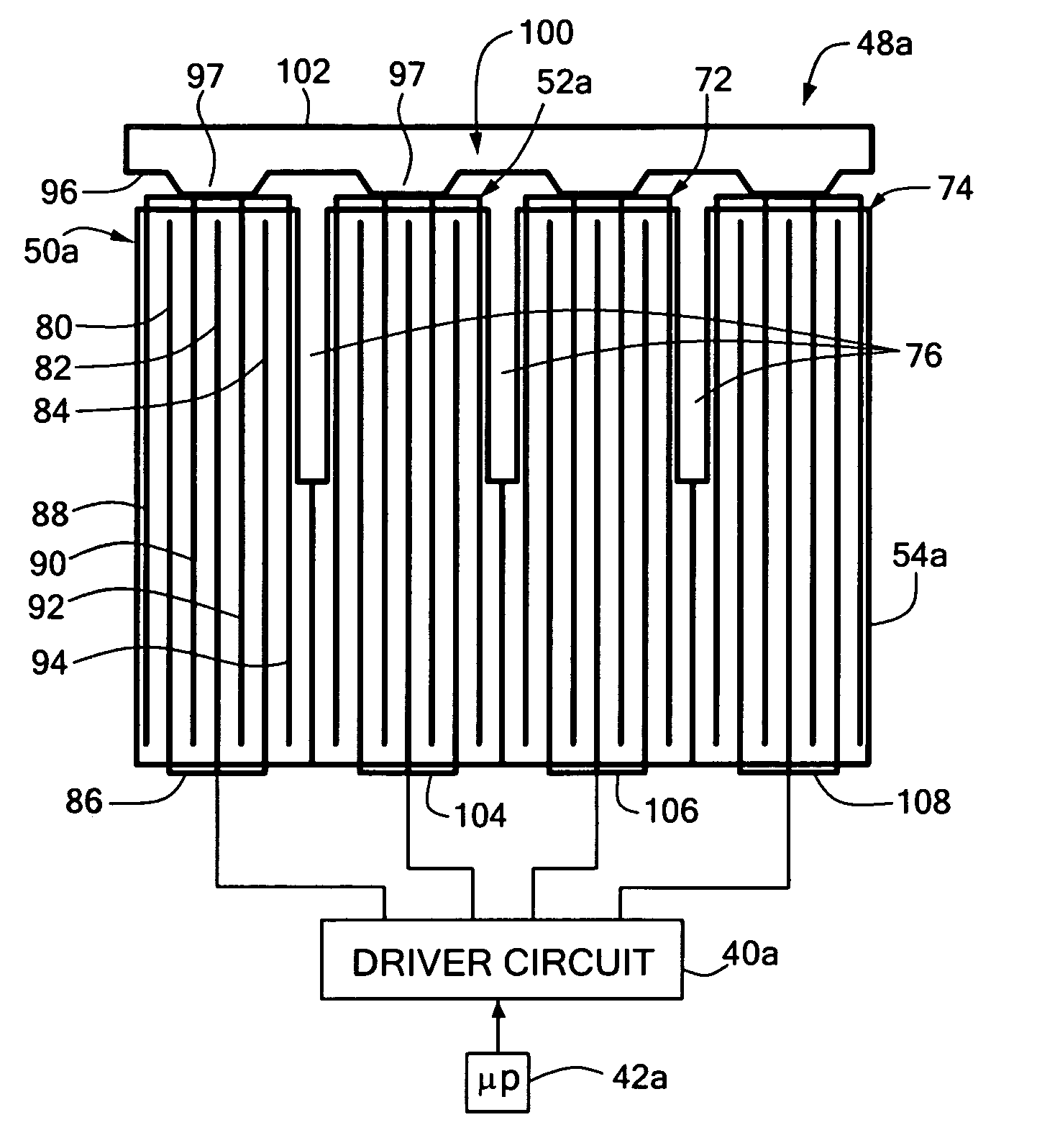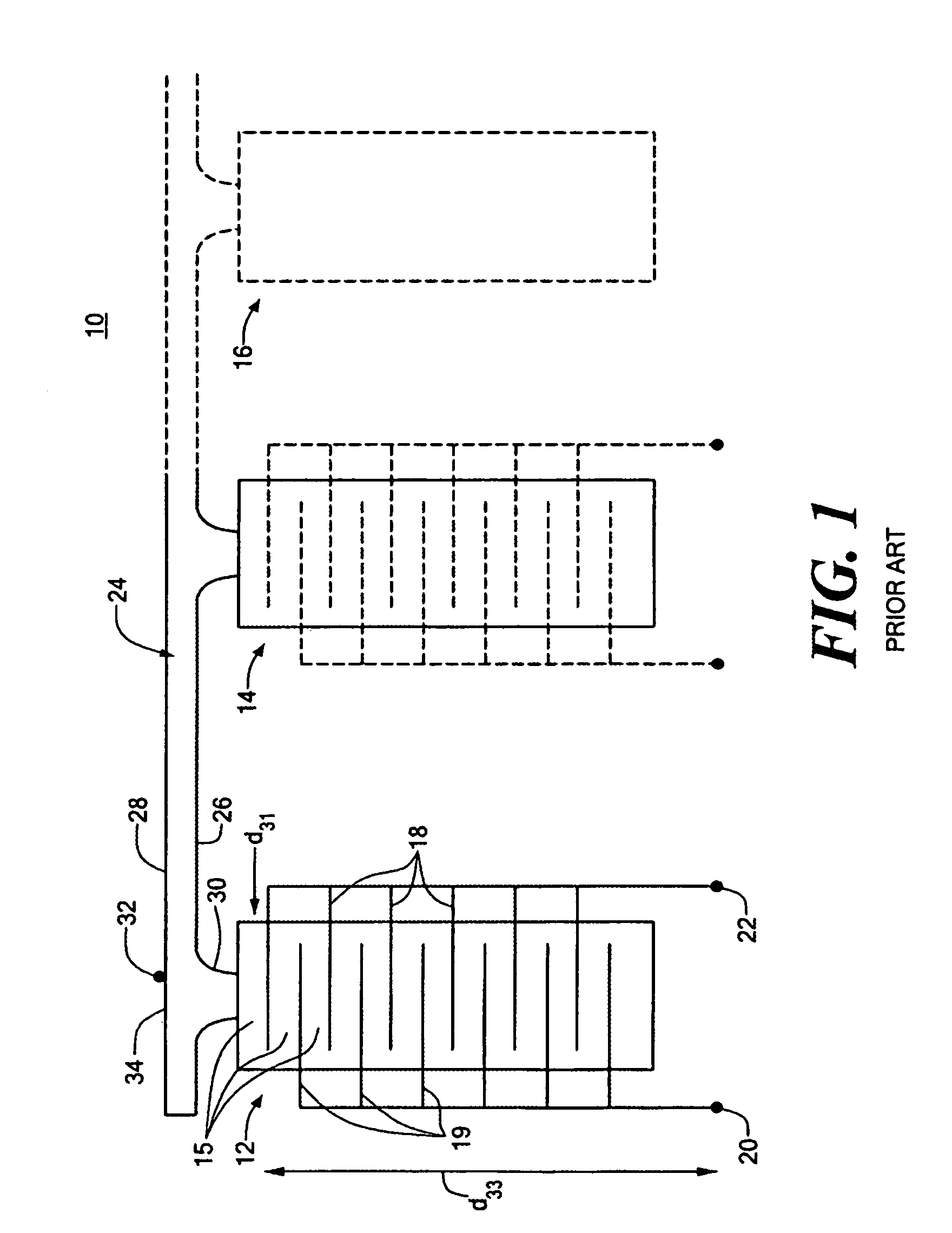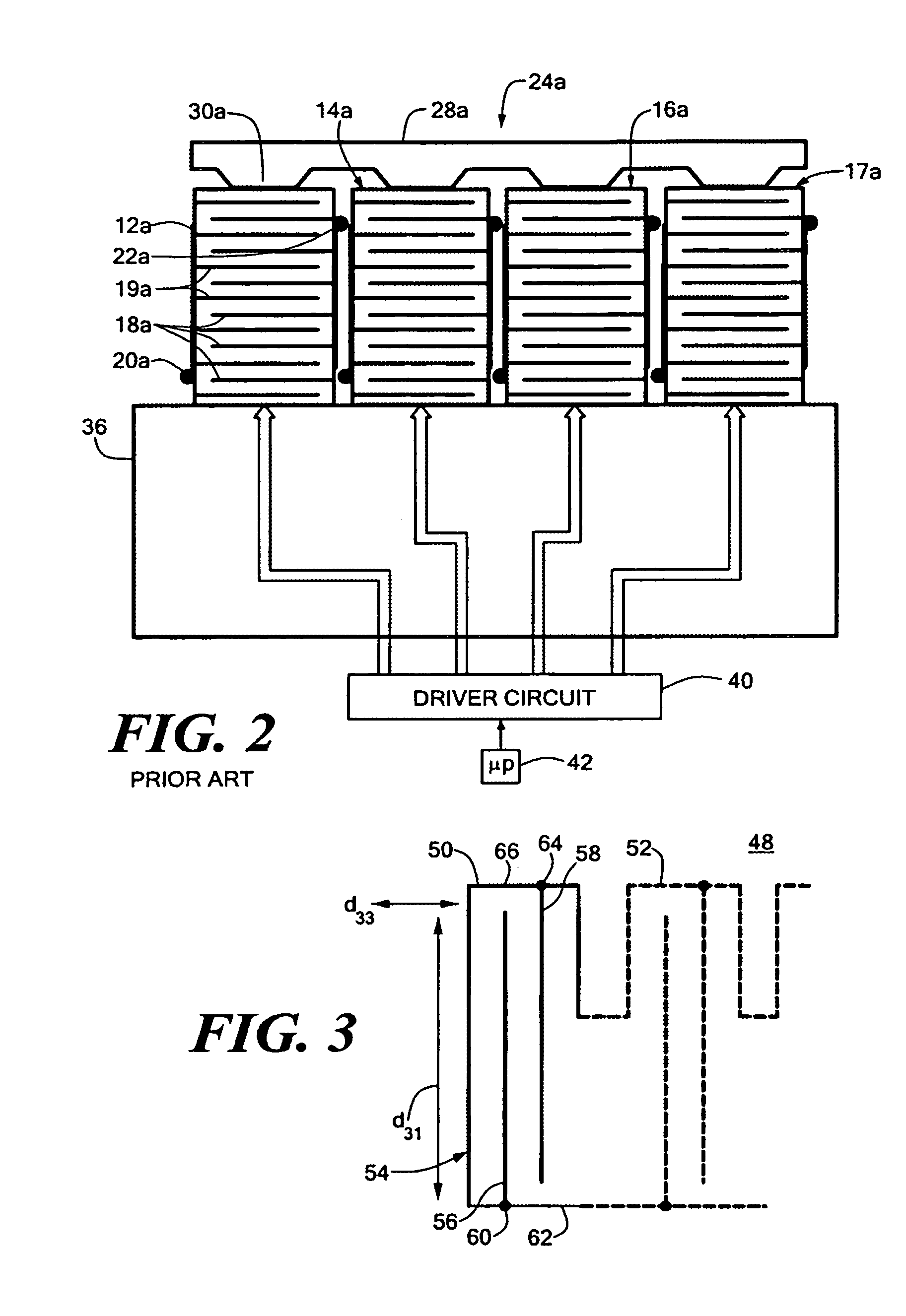Transverse electrodisplacive actuator array
a technology of electrodisplacive actuators and actuator arrays, applied in piezoelectric/electrostrictive/magnetostrictive devices, mirrors, instruments, etc., can solve the problems of complex mutilayer actuator configuration, very sensitive to electrostrain induced stress failure, and unable to meet the requirements of electrical induced failure,
- Summary
- Abstract
- Description
- Claims
- Application Information
AI Technical Summary
Benefits of technology
Problems solved by technology
Method used
Image
Examples
Embodiment Construction
[0026]Aside from the preferred embodiment or embodiments disclosed below, this invention is capable of other embodiments and of being practiced or being carried out in various ways. Thus, it is to be understood that the invention is not limited in its application to the details of construction and the arrangements of components set forth in the following description or illustrated in the drawings.
[0027]There is shown in FIG. 1, a longitudinal electrodisplacive actuator array 10, including a plurality of actuators, 12, 14, 16, each of which is constructed as explained with respect to actuator 12, which is formed in a laminar construction comprising layers of a ferroic material, that is, a ferroelectric or ferromagnetic material. For example, it may be a ferroelectric material, such as, lead magnesium niobate (PMN); a ceramic material which exhibits electrostrictive characteristics. Actuator 12 includes a plurality of layers of the electrostrictive ceramic PMN of layers 15 of the elec...
PUM
| Property | Measurement | Unit |
|---|---|---|
| thickness | aaaaa | aaaaa |
| voltage | aaaaa | aaaaa |
| voltage | aaaaa | aaaaa |
Abstract
Description
Claims
Application Information
 Login to View More
Login to View More - R&D
- Intellectual Property
- Life Sciences
- Materials
- Tech Scout
- Unparalleled Data Quality
- Higher Quality Content
- 60% Fewer Hallucinations
Browse by: Latest US Patents, China's latest patents, Technical Efficacy Thesaurus, Application Domain, Technology Topic, Popular Technical Reports.
© 2025 PatSnap. All rights reserved.Legal|Privacy policy|Modern Slavery Act Transparency Statement|Sitemap|About US| Contact US: help@patsnap.com



